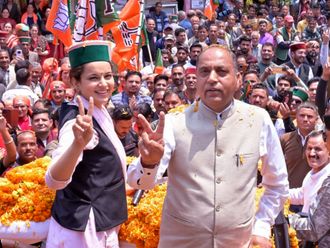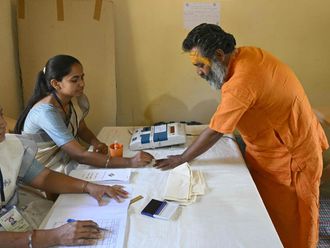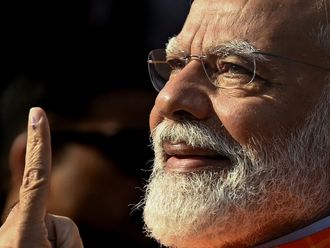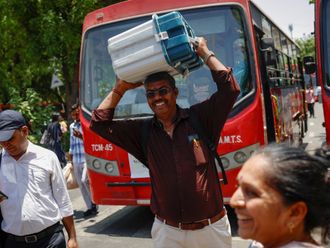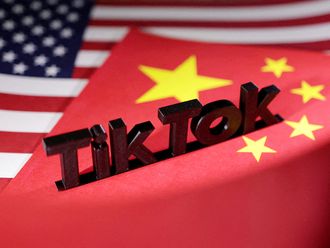Kochi: Thousands gathered here on Wednesday to bid their final goodbyes to veteran politician and Kerala Congress-Mani Chairman, K.M. Mani, who passed away in Kochi on Tuesday evening.
His body was kept for the public to pay homage at the hospital where he breathed his last.
His mortal remains were on Wednesday morning placed in a state-owned bus for the final journey to his party headquarters in Kottayam from where the bus will go to his hometown Pala, where the funeral would be held on Thursday evening.
Traffic stopped at all major roads as thousands came out to bid Mani goodbye.
For longevity in electoral politics, hardly anyone anywhere could match Karingozhakkal Mani Mani, or K.M. Mani to his legions of followers, mainly in Kerala’s agriculture-oriented Pala constituency.
The farmer-turned-lawyer-turned astute politician, Mani won an incredible 13 elections from the Pala constituency beginning 1965, that gave him the opportunity to represent Pala for 54 years.
Even counting the fact that the assembly did not convene the first time he was elected in 1965, and that he was a member of a functioning assembly only when he won in 1967, he served the Pala constituency for a good 52 years.
No wonder he once said, with an impish laugh, “I have two wives — Kuttiyamma, and Pala”.
Those were also the days when Pala was known for its prosperity, thanks mainly to the fertility of the Meenachil region where coconut, rubber, arecanut, coffee and assorted other agricultural produce thrived.
For context, on the global scene, by the time Mani took a bow on the political stage, the John F. Kennedy era had ended in the US, and future Asian tigers like South Korea, Singapore, Hong Kong and Taiwan hardly had any stripes to boast of.
Mani’s early break in politics came in the 1960s when a breakaway group from the Congress party formed the Kerala Congress, purportedly with the aim of better representing the demands of local farmers.
In later years, the Kerala Congress split multiple times and with each split and a new faction coming up, all of the different parts seemed to grow. Thus there were Kerala Congress factions led by P.J. Joseph, T.M. Jacob and R. Balakrishna Pillai.
Mani himself succinctly described the character of his party that witnessed splits and reunions when he said, “Ours is a party that splits as it grows and grows as it splits.”
Yet another split was only narrowly averted weeks before Mani’s demise when the P.J. Joseph faction within the Kerala Congress (Mani) desired to field Joseph as the party’s candidate in Kottayam, instead of Mani’s son, Jose K. Mani.
As a lawmaker, Mani was respected in the assembly both for his innate understanding of the practical difficulties faced by the common man, as well as the serious home work he did before coming to the House.
Like most Indian politicians, Mani swerved to all sides, aligning with both the Congress and the Left, and in his final years he was suspected of showing a leaning towards the Bharatiya Janata Party as speculation grew that he was angling to be chief minister, a post his Kerala Congress party had coveted but never got.
In between, he created another near-unbeatable record of presenting 13 budgets, but the last of those was eminently forgettable as the opposition drowned it out in protests, alleging that he was a beneficiary in the infamous liquor bar bribery scam.
The following days were hard for the marathon man as he was forced to resign from the cabinet, even as health issues caught up with the octogenarian. One saving grace was the victory in the 2016 assembly election, when Pala decided to stick with him for yet another term.
The final years were forgettable for his constituency, too. The meltdown in rubber prices were followed by a decline in price of almost every farm commodity, bringing gloom across the farmer-majority constituency of Pala. His final promise was to ensure Rs150 per kg for rubber farmers, but the scheme benefited few and rubber planters left the sector in droves. On Tuesday, Mani too left the scene, leaving his people with nostalgic memories of more than half a century when their hopes of a better future hinged on the single name, Mani.


